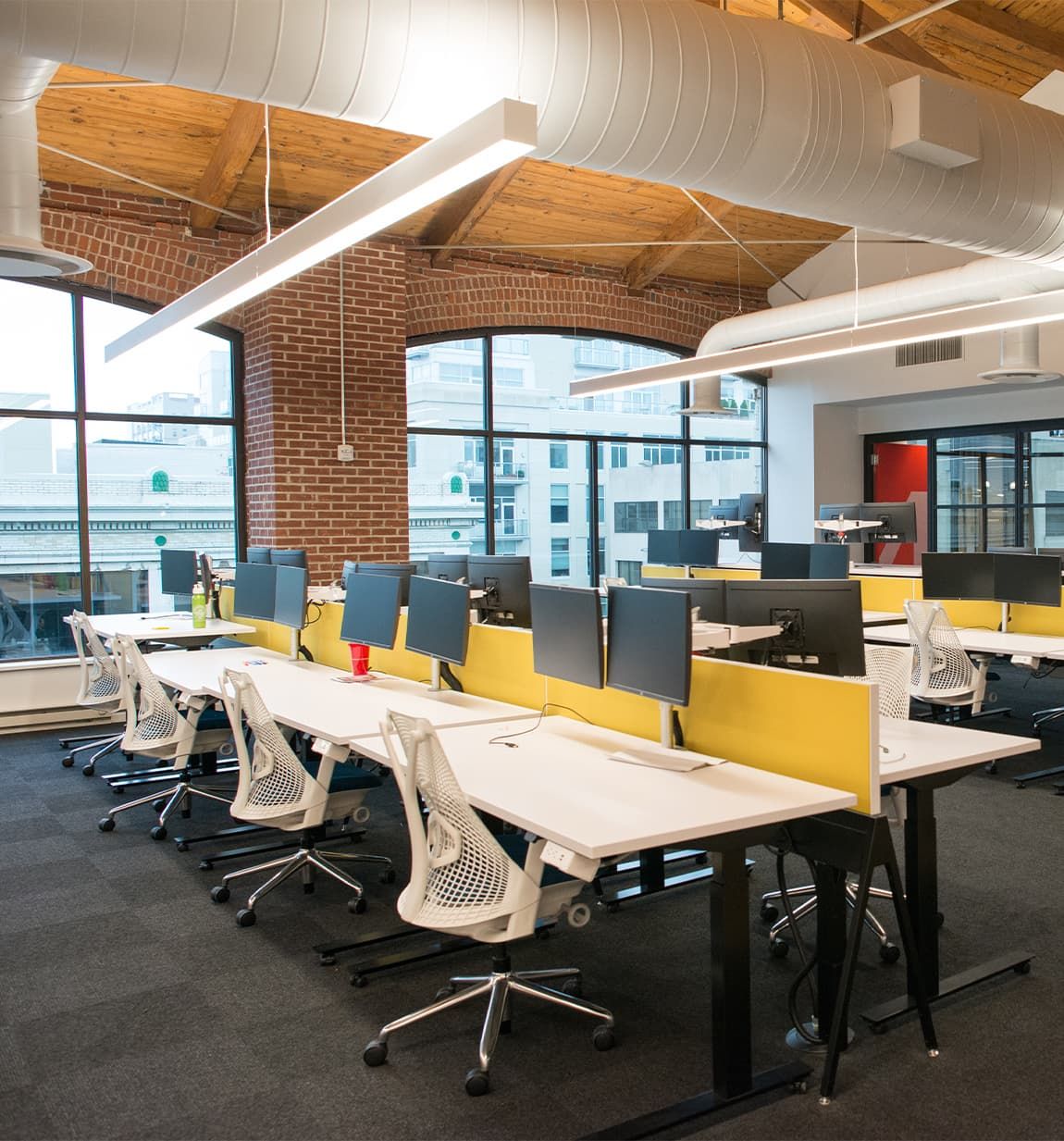As much as you rely on accessibility to get where you need to be, it all depends on a well-developed road and infrastructure network. As cities expand and populations grow, the need for resilient, sustainable, and well-planned road systems have become paramount.
Roads serve as the backbone of transport systems, connecting urban, suburban, and rural areas while supporting economic growth, social mobility, and trade. According to the World Economic Forum, global infrastructure investments are expected to rise substantially, with a projected $94 trillion needed by 2040 to support development and modernisation efforts.
The Critical Role of Infrastructure Consultants
Given the increasing complexity of road infrastructure projects, it is crucial that construction companies and public sector bodies work closely with specialised infrastructure consultants. These professionals guide the design, development, and management of road systems, ensuring that they meet future urban demands, offer durability, and align with environmental standards. By integrating the latest technology, best practices in engineering, and sustainable materials, these projects lay the foundation for safe and efficient transport systems.
Infrastructure consultants are pivotal in road construction, particularly when it comes to large-scale urban projects. Their expertise spans multiple disciplines, including civil engineering, environmental impact assessments, and project management. Their knowledge ensures that every aspect of the infrastructure, from road surfaces to drainage systems, meets both regulatory standards and project-specific requirements.
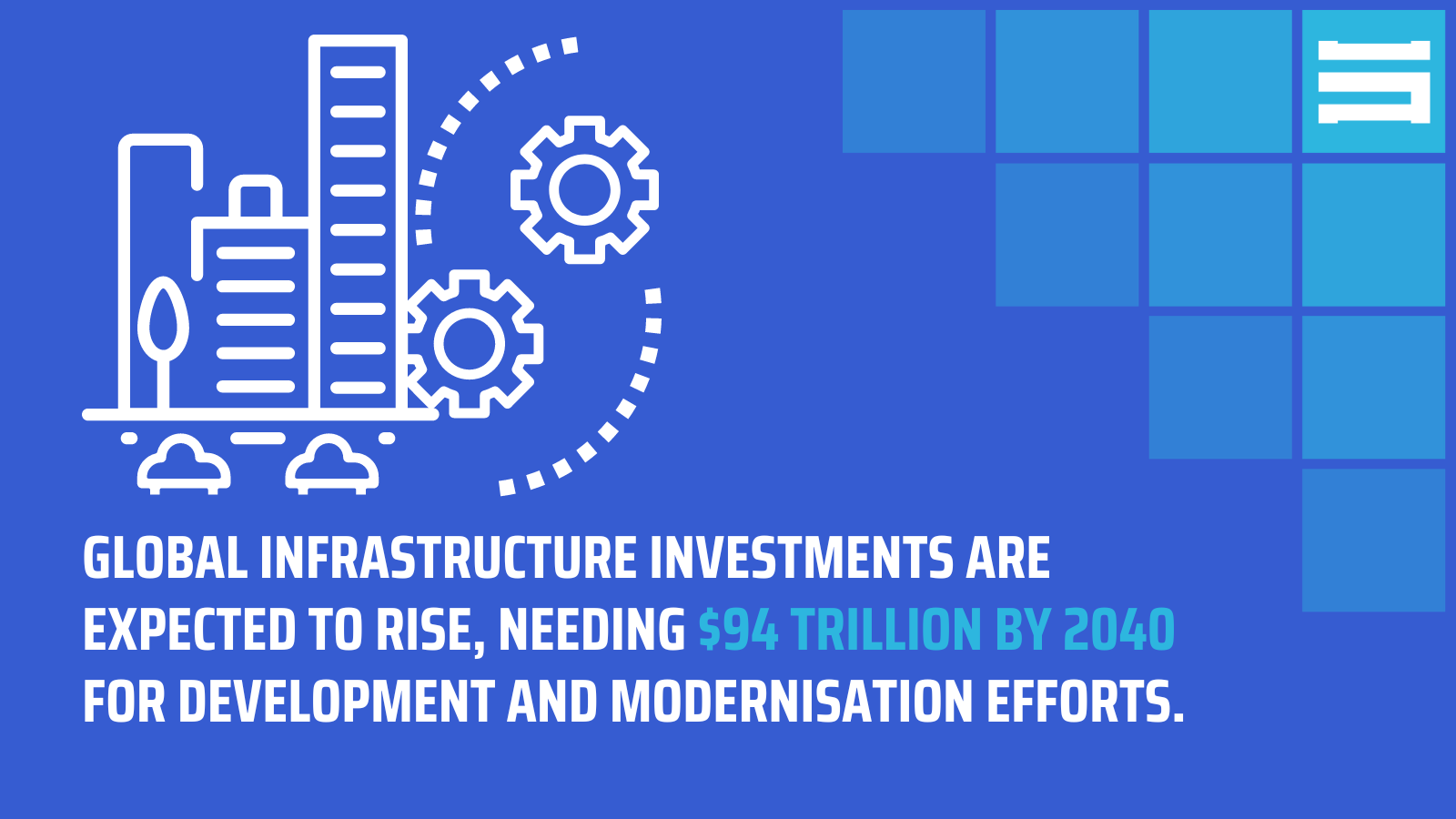
One of the key roles these consultants play is in optimising designs for cost-efficiency and sustainability. In today's climate, budgetary constraints are often a primary concern for both governments and private entities. Consultants are brought in to mitigate risks, reduce costs, and provide alternative solutions without compromising the quality of the project. They also help anticipate future growth, designing systems that can accommodate increased traffic and more complex transport needs.
For example, road projects today need to account for the expected rise in electric vehicles (EVs). Infrastructure consultants, therefore, work with engineers to incorporate EV charging stations, smart traffic management systems, and sustainable construction materials into road designs.
What are the Unique Challenges in Roads and Infrastructure Construction?
Urban road construction presents a distinct set of challenges that require careful planning and advanced solutions. Among the most significant challenges are:
1. Limited Space in Urban Areas
Urban areas often have limited space for road infrastructure due to dense building layouts and already existing utility options. Accommodating growing traffic volumes within these confined spaces can be a very daunting task. Engineers must be creative in maximising available space while ensuring that the road networks remain efficient and safe.
2. Complex Infrastructure Networks
Cities feature a complex network of existing infrastructure, including underground utilities, buildings, transportation systems, and other critical structures. Integrating new roadways with these pre-existing elements can be highly complicated, often requiring detailed mapping and strategic design to avoid damaging critical infrastructure.
3. Environmental Concerns from Pollution
Urban environments are often sensitive ecosystems. The environmental impact of road construction, including pollution and disruption to natural habitats, can be significant. It is essential to implement strategies that reduce environmental damage and preserve green spaces in urban centres. When it comes down the construction of these components too it is important to take the best sustainable practices into action.
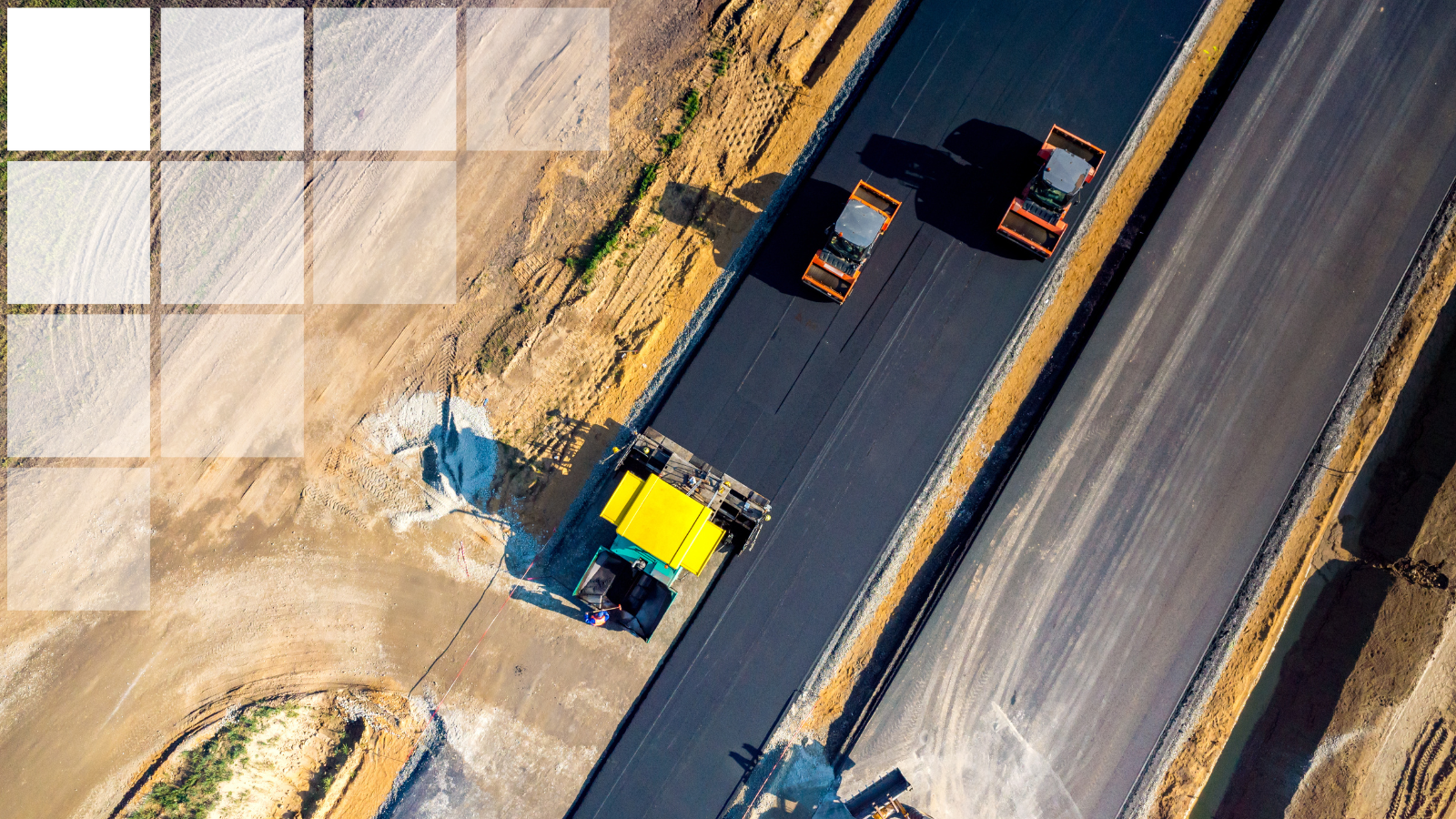
4. Public Disruption and Life Going On
Road construction in cities causes inevitable disruption to daily life, including traffic congestion, noise pollution, and restricted access to homes and businesses. Managing these disruptions while maintaining public support requires a delicate balance between progress and minimising inconvenience to the community.
What are the Challenges and Solutions in Roads and Infrastructure Building?
Road construction, while seemingly straightforward, presents numerous challenges that must be addressed through careful planning and innovation. The process typically involves several phases, including feasibility studies, environmental assessments, and the design and construction of roadways. Engineering road construction requires the expertise of multiple professionals, including civil engineers, road design engineers, and infrastructure project engineers, each contributing their specialist knowledge to ensure the success of the project.
Environmental and Regulatory Challenges
One of the most significant challenges in engineering road construction is managing environmental impacts. Road construction often disrupts local ecosystems, leading to potential harm to wildlife and natural landscapes. To mitigate these risks, infrastructure engineers work closely with environmental specialists to develop eco-friendly solutions, such as integrating wildlife crossings, using recycled materials for road surfaces, and adopting energy-efficient machinery during construction.
If you take into account the recent flooding in the UAE that significantly impacted road infrastructure, particularly in urban and northern regions like Dubai and Fujairah. The record-breaking rainfall, the heaviest in 75 years, led to severe disruptions including road closures, damaged road surfaces, and overloaded drainage systems. In response, the UAE government has invested in large-scale flood control measures such as the Deep Tunnel Storm Water System, designed to drain stormwater from 40% of Dubai. These efforts are part of the UAE's broader strategy to enhance its infrastructure’s resilience to future climate-related events.
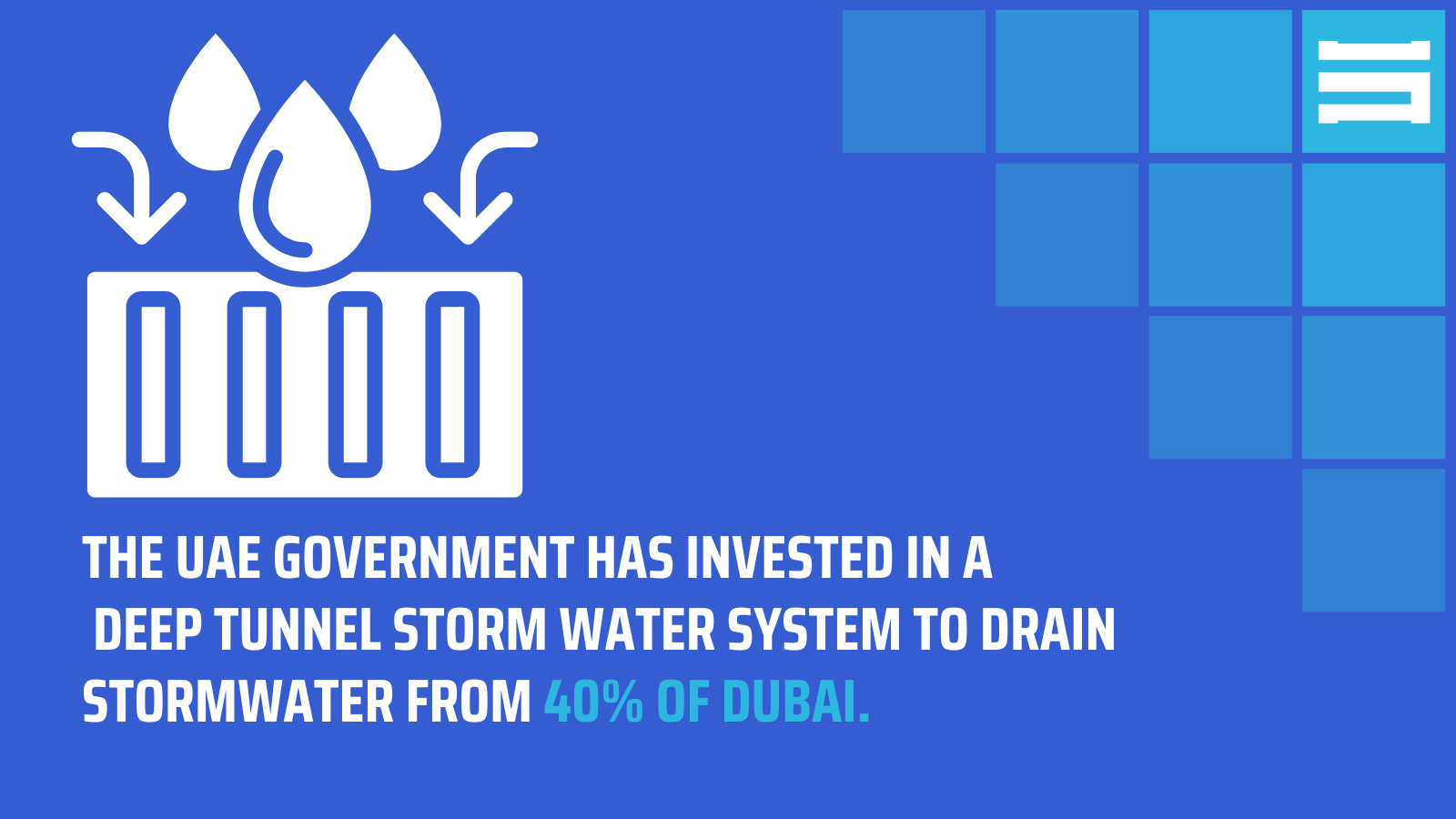
Moreover, road infrastructure projects often encounter regulatory hurdles. In many countries, strict environmental protection laws and planning regulations dictate how and where road networks can be developed. Ensuring compliance with these laws is a crucial aspect of any infrastructure project. Infrastructure consultants are essential in navigating these regulations and ensuring that all necessary permits are acquired before construction begins.
The Technological Solutions in Road Design and Construction
In recent years, technological advances have revolutionised the field of road engineering. Tools such as Building Information Modelling (BIM) and Geographic Information Systems (GIS) allow for more efficient planning, real-time monitoring, and data-driven decision-making. BIM, for instance, enables engineers to visualise the entire lifecycle of a project, from initial conception. This technology provides real-time updates and simulations, helping to prevent costly errors during the construction phase.
Similarly, GIS technology supports route planning and helps engineers make environmentally informed decisions. By mapping terrain and evaluating traffic flow patterns, GIS enables road design engineers to create more efficient and safer routes. In addition, GIS plays a role in addressing environmental concerns by identifying areas where construction could cause minimal disruption to ecosystems.
Another key innovation transforming road construction is digital twin technology. This emerging technology creates a virtual replica of physical infrastructure, enabling real-time monitoring and predictive analysis. Engineers can simulate various conditions, such as traffic volume or weather impact, and adjust road designs accordingly. This not only enhances the longevity of road networks but also reduces downtime caused by maintenance and repairs.
The Role of Smart Technology in Modern Roads
The future of road infrastructure is inextricably linked to the rise of smart technology and the development of smart cities. In these cities, road and infrastructure engineering consultants work to incorporate advanced systems that improve traffic management, reduce emissions, and enhance public safety. One such example is the use of IoT-enabled sensors embedded in roads to monitor traffic flow, road conditions, and environmental factors in real-time. These systems can alert engineers to potential hazards or areas in need of maintenance, leading to more proactive and cost-effective management.

Additionally, autonomous vehicles (AVs) are poised to transform road networks in the coming decades. Road design engineers are already developing infrastructure capable of supporting AVs, which require precise lane markings, clear signage, and responsive traffic signals. AV technology also offers the potential to reduce traffic accidents, as autonomous systems can eliminate human error from the driving process. However, the integration of AVs into existing road networks poses significant challenges, including the need to retrofit old infrastructure to accommodate new technology and many more hurdles to come.
Sustainable Practices in Road Engineering
In response to growing concerns about climate change, the construction industry is increasingly adopting sustainable practices. For road construction projects, this includes using eco-friendly materials, such as recycled asphalt, and reducing energy consumption during the construction process. Infrastructure consultants play a critical role in advising on sustainable options and helping clients meet stringent environmental regulations.
For example, infrastructure engineers often recommend the use of permeable paving materials, which allow rainwater to pass through the road surface and be absorbed into the ground below. This not only helps prevent flooding but also reduces the strain on urban drainage systems.
Moreover, road projects are now incorporating renewable energy solutions, such as solar-powered street lighting, into their designs. These innovations contribute to reducing the overall carbon footprint of infrastructure projects, aligning them with global sustainable construction goals.
Managing Large-Scale Infrastructure Projects
Managing large-scale road infrastructure projects especially in the Middle East presents distinct challenges due to the region’s varied geography, fast-paced urban development, and localised climate conditions. These projects demand extensive coordination among government agencies, private contractors, and local communities. Additionally, strict rules and regulations across multiple jurisdictions adds layers of complexity.
A prominent example is the Riyadh Metro in Saudi Arabia, a multibillion-dollar infrastructure project spanning 176 kilometres across six lines. This metro project involved collaboration between international engineering firms and local authorities, highlighting the importance of advanced project management techniques to meet deadlines and manage costs. The project utilised technologies like Building Information Modelling (BIM) and other project management techniques to enable real-time updates, streamline resource allocation, and ensure effective communication between all stakeholders.
In the Middle East, leveraging such advanced tools is non-negotiable for keeping large-scale projects on track. By providing centralised platforms for real-time progress tracking and stakeholder communication, these tools help mitigate risks and avoid delays, ensuring projects are delivered efficiently and within budget.
What are the Future Trends in Road and Infrastructure Engineering for Smarter Cities?
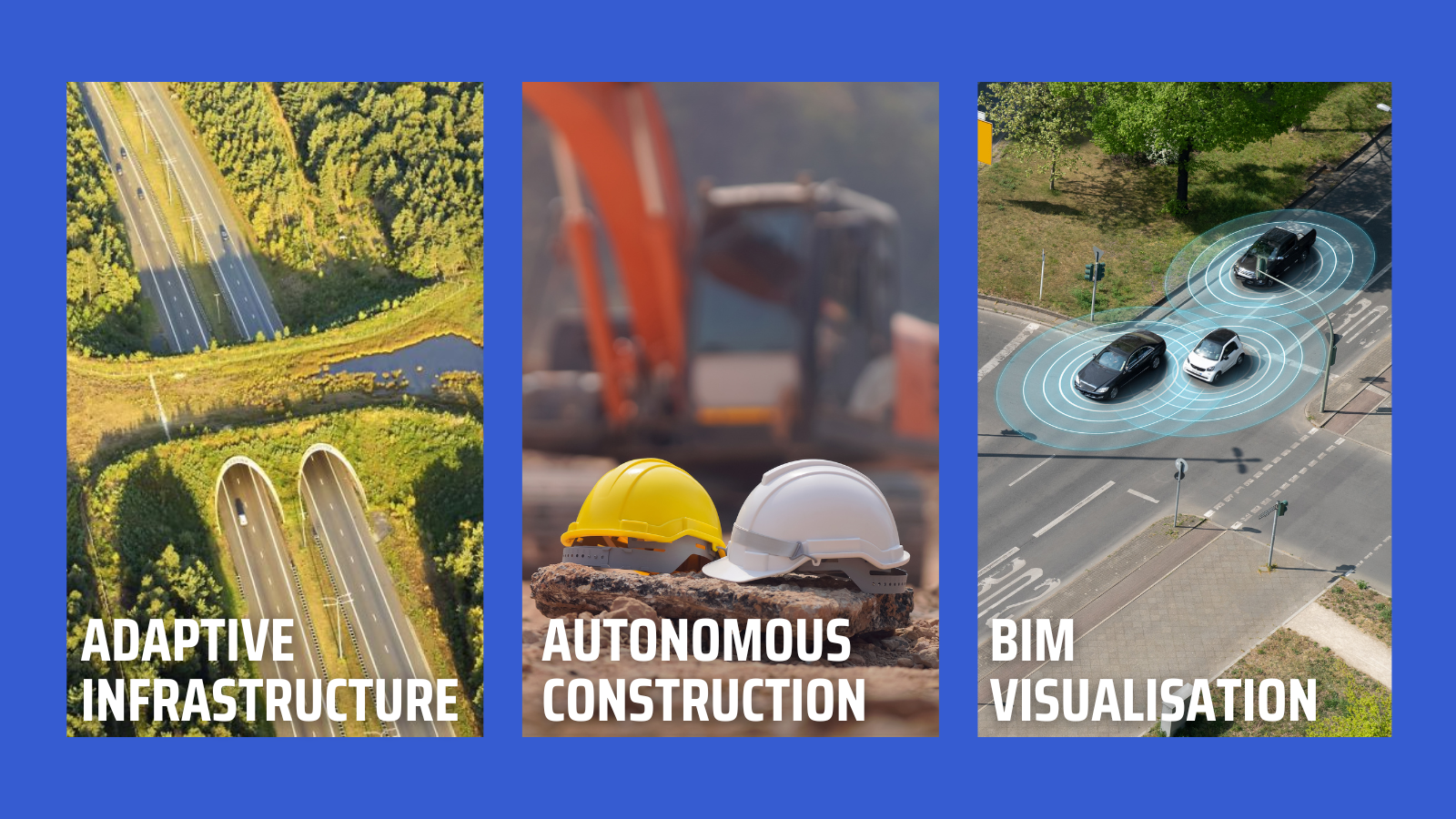
The field of road and infrastructure engineering is rapidly evolving with technological advancements and a greater emphasis on sustainability. Here are six key trends shaping the future of the industry:
- AI and Machine Learning: AI and ML are being leveraged for predictive analysis and automated design processes. These technologies can predict structural issues before they arise, optimise designs, and enhance traffic management systems, thereby reducing congestion and improving urban mobility.
- Building Information Modelling (BIM): BIM is becoming a critical tool in infrastructure projects, allowing engineers to create detailed digital models that enhance project visualisation, improve collaboration, and reduce construction errors. This technology leads to more efficient project planning and execution.
- Climate-Adaptive Infrastructure: There is a growing emphasis on resilience to climate change. Engineers are now focusing on designing infrastructure that can withstand extreme weather events and environmental stressors, for wildlife areas in highway networks these can be underpasses and natural bridges, and even focus on rising sea levels and floods. This trend is key in future-proofing urban and regional infrastructure.
- Modular and Prefabricated Construction: Modular construction methods, where components are manufactured off-site and assembled on-site, are gaining popularity. This approach reduces construction time, lowers costs, and minimises disruption to local communities.
- Digital Twin Implementation: The use of digital twins—virtual replicas of physical infrastructure—allows for real-time monitoring, predictive maintenance, and optimisation of infrastructure performance. This technology helps manage assets more efficiently and reduces long-term maintenance costs.
- Autonomous Construction Equipment: The integration of autonomous vehicles, drones, and robotic machinery in construction is streamlining operations. These technologies can work 24/7, reducing reliance on human labour and increasing site safety by minimising accidents.
These trends are reshaping the future of road and infrastructure engineering, offering more sustainable, efficient, and innovative solutions which we stand for at Stonehaven.
Conclusion
The engineering and construction of roads and infrastructure are integral to the development and sustainability of modern cities. As populations grow and urban areas expand, the need for well-planned, durable, and sustainable road networks becomes more pressing. From the involvement of infrastructure consultants and engineers to the adoption of cutting-edge technology and sustainable practices, the future of road construction is both exciting and essential for long-term progress.
About us
Stonehaven is a trusted project management company and construction consultant based in Dubai, offering comprehensive construction management services across the UAE with offices located in Dubai, UK and Sri Lanka. As one of the leading project management companies in Dubai, we manage projects from inception to completion, ensuring quality, efficiency, and cost-effectiveness at every stage.
We deliver value through expert project management consultancy services, tailored to meet the unique needs of each client. Our core services include Cost Management, Project Management, Construction Supervision, Engineering Support, Design Support, and Marketing & Communications. Whether you’re looking for construction consultants or project managers in the UAE and wider GCC region, Stonehaven is your trusted partner for achieving excellence in your next project.
Stonehaven offers expert roads and infrastructure consultancy, providing comprehensive design and project management services. Our team of experienced infrastructure consultants works closely with clients to ensure that every project is delivered on time, within budget, and to the highest standard of quality. Whether you're embarking on a new road construction project or upgrading existing infrastructure, Stonehaven is here to support you every step of the way.
Get in touch with us today to learn more about how we can assist with your next road and infrastructure engineering projects. Contact us below for more information and discover why we're the trusted partner for infrastructure development in the region.






